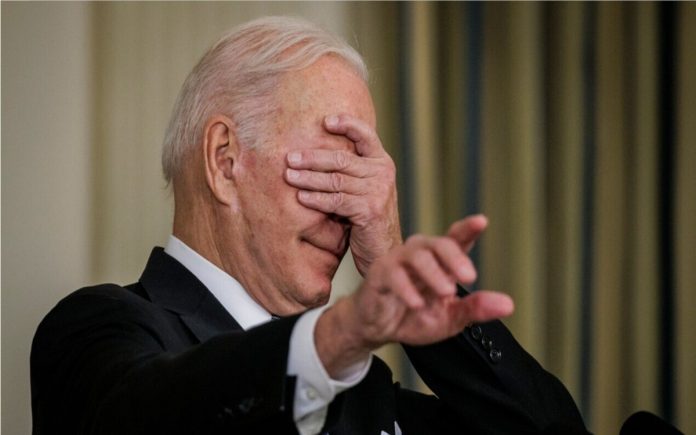President Joe Biden’s fiscal year 2025 budget proposal has ignited intense debate among economists and policymakers, with concerns mounting that it could exacerbate the already soaring levels of inflation gripping the nation. The proposal, if approved, could significantly inflate the national debt and further strain an economy grappling with unprecedented price hikes.
Outlined in Biden’s budget are ambitious spending measures and tax increases amounting to a staggering US$14.8 trillion in additional debt by the end of his presumed second term. Experts warn that these provisions are likely to fuel inflationary pressures without effectively addressing the root causes of escalating prices.
Richard Stern, director of the Grover M. Hermann Center for the Federal Budget at the Heritage Foundation, cautions that the proposed budget, coupled with anti-growth taxes and large deficits, could lead to a reduction in the real supply of goods and services. This imbalance, characterized by more dollars chasing fewer goods, is a recipe for sustained inflationary pressures, according to Stern.
The current inflation rate stands at 3.2 percent year-over-year as of February, having risen 18.5 percent since Biden assumed office in January 2021. Biden’s economic agenda, marked by substantial stimulus packages like the American Rescue Plan and the Inflation Reduction Act, has injected trillions of dollars into the economy, further exacerbating inflationary trends.
Stern highlights that Biden’s budget anticipates a significant increase in household debt, which could have far-reaching consequences. The mounting debt burden is expected to drive interest rates higher, making housing unaffordable for many and stifling business growth.
In response to escalating inflation, the Federal Reserve has raised its federal funds rate, putting upward pressure on interest rates across the economy. This move, aimed at curbing inflation, could further exacerbate affordability challenges, particularly in the housing market.
The budget allocates US$258 billion for building or preserving two million housing units, targeting lower- and middle-income households. However, experts caution that federal funding alone may not address the root causes of housing shortages, particularly stringent local regulations that impede construction.
Chris Edwards, the Kilts Family Chair in Fiscal Studies at the Cato Institute, argues against federal intervention in solving housing shortages, emphasizing the role of state and local governments in deregulation.
Edwards asserts that federal subsidies may exacerbate inflationary pressures without effectively addressing housing affordability.
A Biden administration official defends the budget, claiming it will reduce the national deficit by US$3 trillion over the next decade through tax increases and spending cuts. However, critics argue that the budget employs deceptive accounting practices to mask the true extent of deficit spending, projecting unrealistic declines in spending compared to GDP and inflation growth.
The national debt has surged under the Biden administration, reaching nearly US$34.5 trillion, up from around US$27.8 trillion in January 2021. Despite economic growth, the debt continues to climb, surpassing GDP growth in the fourth quarter of 2023.
Moreover, Biden’s proposed tax hikes on high-income individuals and corporations have drawn criticism for their potential impact on investment and economic growth. Stern warns that these tax increases could translate into lower wages, higher consumer prices, and reduced opportunities for entrepreneurship.
While GDP has shown signs of resilience, outpacing trend expectations in recent quarters, concerns persist regarding the sustainability of economic growth amidst mounting debt and inflationary pressures. Stern characterizes Biden’s budget as a “wholly unserious recipe for long-term economic disaster”, underscoring the urgency of addressing inflationary risks.
As policymakers deliberate over Biden’s budget proposal, the stakes remain high, with the potential to shape the trajectory of the nation’s economy for years to come. The specter of inflation looms large, underscoring the need for prudent fiscal management and targeted policy interventions to mitigate its adverse effects on households and businesses alike.




